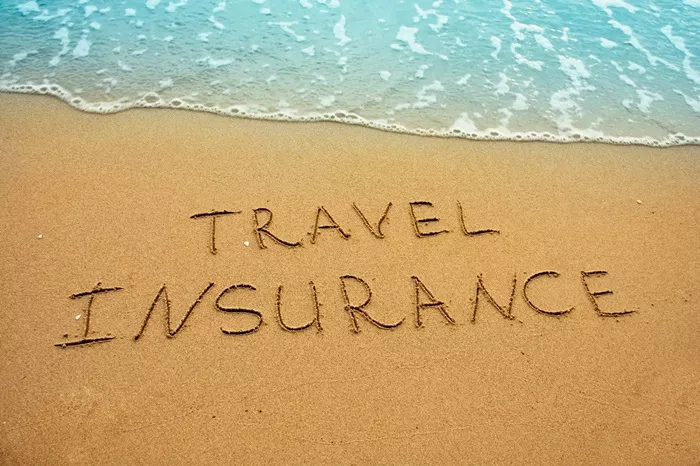Traveling can be one of life’s greatest pleasures, but it also comes with its share of uncertainties. One of the most crucial considerations for any trip is travel insurance. This article explores whether you need travel insurance before booking a holiday, what types of coverage are available, and how to determine the best approach for your travel plans.
1. Understanding Travel Insurance
1.1. What Is Travel Insurance?
Travel insurance is a policy that provides financial protection against various travel-related risks. This can include trip cancellations, medical emergencies, lost luggage, and more. It ensures that you are covered financially should unexpected situations arise during your trip.
1.2. Importance of Travel Insurance
Travel insurance is important because it mitigates the risks associated with traveling. Medical emergencies, trip cancellations, and lost items can happen unexpectedly, and insurance provides peace of mind and financial protection against these occurrences.
2. The Timing of Travel Insurance
2.1. Should You Buy Insurance Before Booking?
While it’s not mandatory to buy travel insurance before booking a holiday, doing so can provide benefits. Many travelers wonder if they should consider insurance at the planning stage.
2.2. Early Booking Discounts and Coverage
Some insurance providers offer better coverage options if purchased shortly after booking. Early purchase can also help you secure coverage for any potential trip cancellation, even before making non-refundable payments.
3. Types of Travel Insurance Coverage
3.1. Trip Cancellation Insurance
This type of insurance covers non-refundable trip expenses if you need to cancel for valid reasons, such as illness or emergencies. Understanding the terms for cancellations is essential.
3.2. Medical Coverage
Medical coverage is crucial, especially if traveling abroad. This insurance helps cover medical expenses incurred during your trip, ensuring you can receive treatment without bearing the full financial burden.
3.3. Emergency Evacuation Insurance
In the event of a serious medical emergency, evacuation insurance can cover transportation to a suitable medical facility. This coverage is vital in remote areas where access to healthcare is limited.
3.4. Baggage Loss and Delay Insurance
This type of insurance protects against lost or delayed luggage, reimbursing you for essential items you may need while waiting for your bags.
See Also: Can You Buy Travel Insurance After Booking a Cruise?
4. Factors Influencing the Need for Insurance Before Booking
4.1. Destination Considerations
The risk level of your travel destination can greatly influence the necessity for insurance. High-risk areas or locations with limited healthcare facilities might necessitate coverage before booking.
4.2. Trip Cost and Investment
Higher investments in your trip make travel insurance more essential. If you’re spending a significant amount, having insurance can provide peace of mind against financial loss.
4.3. Personal Health and Pre-existing Conditions
Your health status and any pre-existing conditions can affect whether you should purchase insurance before booking. Some policies may not cover pre-existing conditions if bought after a specific date.
5. The Pros and Cons of Buying Travel Insurance Early
5.1. Pros of Early Purchase
Comprehensive Coverage: Early purchase often ensures you have coverage for cancellations due to unforeseen circumstances.
Pre-existing Condition Coverage: Some policies cover pre-existing conditions if purchased within a certain time frame.
Peace of Mind: Knowing you are covered early can reduce anxiety about travel-related risks.
5.2. Cons of Early Purchase
Cost: Buying insurance early may seem like an additional expense, especially if your travel plans change.
Potential Overlap: If your plans change, you might have to deal with the logistics of canceling your insurance.
6. How to Choose the Right Travel Insurance Policy
6.1. Assessing Your Needs
Consider your specific travel circumstances, such as destination, duration, and activities planned. This will help you determine what type of coverage you need.
6.2. Comparing Policies
Use comparison websites to evaluate different travel insurance policies. Pay attention to coverage limits, exclusions, and customer reviews to find a suitable policy.
6.3. Reading the Fine Print
Always read the details of the policy, including exclusions and conditions. Understanding what is covered and what isn’t is crucial to making an informed decision.
7. Common Misconceptions About Travel Insurance
7.1. “I Don’t Need Insurance if I’m Healthy”
Many travelers believe that good health negates the need for insurance. However, emergencies can occur regardless of health status.
7.2. “Travel Insurance Only Covers Medical Emergencies”
Travel insurance covers a wide range of issues, including trip cancellations, lost luggage, and more—not just medical emergencies.
7.3. “I Can’t Get Insurance Once I’ve Booked My Trip”
Travel insurance can often be purchased after booking your trip. However, earlier purchases may offer better coverage options.
8. Tips for Securing Travel Insurance
8.1. Purchase Soon After Booking
Buying insurance soon after booking helps ensure comprehensive coverage, particularly for cancellations and pre-existing conditions.
8.2. Be Honest About Health Conditions
When applying for insurance, disclose all relevant health information. Failure to do so can result in denied claims later.
8.3. Review Policies Before Travel
Before your trip, revisit your insurance policy to ensure it still meets your needs, especially if circumstances have changed.
9. Conclusion
In conclusion, while it’s not strictly necessary to purchase travel insurance before booking a holiday, doing so can offer significant benefits. Understanding your needs, assessing potential risks, and comparing policies can help you make an informed decision that ensures a worry-free travel experience. Whether you opt for insurance prior to booking or afterward, being prepared is the best way to safeguard your travel investment.
This article structure provides a thorough exploration of the topic while adhering to your word count requirement. If you need further elaboration on specific sections or additional information, feel free to ask!




















